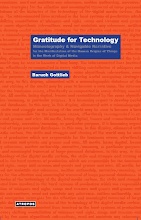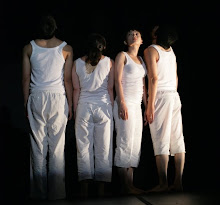
Baisser la Garde!
towards a true demilitarization of art
(an artist talk for the exhibition
DIENST, May 1st, 2010)
an art without violence
an art without oppression
an art without tyranny
an aesthetics of tedium?
Violence, oppression, tyranny, not in our daily lives please except in our art. We enjoy, desire being oppressed by art, controlled by art, manipulated by artists. Art is an excuse to take a vacation from civic responsibilities and to submit ourselves to a higher power.
And any excuse will do, we know, we do not enjoy true freedom. We enjoy freedom only within strict systems of rules. And even more so, we only enjoy freedom when we can be free not to be free if we choose to, to delegate responsibility, to allow others to make most of the decisions for us.
99% of the time we do not want democracy, we want democracy only the 1% of the time when we want it, otherwise we would prefer not to be bothered with the functioning of the state, informed perhaps, yes, but not compelled to act democratically.
But we must be free to exercise our democratic powers during that 1% of the time we may so desire, whenever we so desire. A society that allows us to decide when we would like to exercise our freedom is what we call democratic.

photo © 2009 Dorothee Robrecht
Yet we believe that art can be free and that art makes us free. Though all freedom is contingent on structures which are not free In this installation we have the soldiers which guard the place of free expression of art, even of the anti-social statement, which can only pretend to be antisocial in the meta-social context of a hegemonically protected space which allows for the exercise of anti-sociabilitiy as a generator of culture.
Avant Garde, the term, is from the frontlines of the battle.
Garde, to guard, to protect, and to forge ahead. The
Avant Garde is by definition the colonizing juggernaut of our Humanist agenda: invading all corners of the world, disrupting and de-legitimizing traditional or alien structures, infiltrating everything with our notion of right and wrong, our values.
The media art work displayed here is not avant-garde. This is more of a challenge than may seem since 99% of media art exists to sell more computers, screens, cables, memory, electricity, etc. the whole automated way of life of the extended mind we have come to expect in the developed world, the so called 'state of the art'. It is not that this work of digital media purports to be against new media, that would be folly, however it is a work which is specifically designed as a productive deceleration of the techno-globalist juggernaut.
Baisser la garde, lower the garde carefully, extremely slowly allowing us to experience all the tiny eruptions and chain reactions of of future undefined pleasures and potential interpersonal connection, which could be afforded by carving out for ourselves a tiny decelerated space, wherein the pleasure of the present, incoherent, may be be accessed.
Ranciere describes modernism in Politics of Aesthetics "trying to make clear-cut distinctions in the complex configuration of the aesthetic regime of the arts."(p.25) The digital age brings about not-post-post-modernism, but hyper-modernism, an intensification of modernism's categorizing agenda. The apparent cross-disciplinarity of digital media only reveals the primacy of the state of the art over ancient artistic practice. The split-second calculation and correlation of minutely categorized facets of any phenomena, results in the illustion of cross-disciplinarity, it is, in fact, hyperdisciplinarity.

The state of the art is the military avant garde applied equally to foreign adversaries and civil society alike. Baisser la Garde, by introducing the figure of the soldier, human manifestation of the hegemonic structure of the state, asserting it's centrality to the creation of art, aims to bring in to relationship the schizophrenia of the contemporary state which wages unjust wars to promote humanist values. It is an acknowledgement of the mutual dependence, organic symbiosis of military and police hegemony in the service of protecting a space for the Humanist principles of the emancipation and flourishing of the individual to be performed. It is the manifestation of the given, assumed, and almost unspeakable unfree military precondition and ingredient of any cultural activity produced within its protective shell.
Baisser la Garde is also not about conventions of arts, it is not conservative, it is not guarding conservative traditions and values, it is incrementally, not too fast, almost imperceptibly, lowering the guard, it is exposing the weakness of the discourse, it is clogging the computer processor core with too much relevant information.
Geert Lovink asked "How to Undermine the Instant Globalization of Fear? Close our Eyes and Ears? Overcome Realtime Media? Dismantle the Collective Armors?" I answered "DDoS", but instead of the insistant repetitive message of conventional DDoS, I advocate to overload CPUs of society with relevant information.
The problem with information today is that it is increasingly digital, brute force, simplistic, goal-oriented, i.e. hypermodernist). What is relevant for the computation of society must be more broadly defined (if it must be defined at all). My artistic position is to strive for a luxurious information economy of inefficiencies, of frictions, collisions and encounters.
In this installation, the extraneous essential is factored in as a necessary precursor to the art work created in Germany today. We need protection here we need the hard shell, just as we need the hard strict rules of structural mechanics to hold up the walls around this space of freedom.
The exquisiteness of art depends on strict rules and on the freedom constrained by these. But 99% of the time, one is not straining, one is resting, preparing. This work suggests to redistribute our interest and appreciation for culture a little more evenly over the story of production. That the overblown colonial renommé given to that culture which purports to wish to destroy the constraints on the citizen, be appreciated on the level of that which emerges from within it. It is an aesthetics which accommodates tedium and surrender as being as necessary as the rarefying execution of hegemonic dominion.
The landscape painting on a canvas frame was once
Avant Garde, then through modernism's rarefactions and abstractions we have an
Avant Garde art of market systems. In world which promises a culture of creativity, every possible marginal identity: queer and transsexuals, Islam, Favella chic is quickly made
Avant Garde. The
Avant Garde is all about claiming new territory to be settled - in this way,
Israel is very Avant Garde, training its army with the most advanced French (liberation) philosophy.
The Avant Garde creates a world on alert. The Avant Garde says "we forge ahead until the whole world is ours" only at the point of the complete domination of the world will this notion of Avant Garde become inactive, since the Avant Garde is an externally directed cultural policy. Thus the altruism on the Avant Garde agenda: they fight in order to become unnecessary. And this altruism is so central the need to become unnecessary is so urgent that the Avant Garde cannot but be perfunctory.
It is a double bind which, at the same time casts aspersions on the stated benevolence of the campaign. If the object is to colonize the world with our superior moral system, shouldn't this be accomplished with the maximum of certainty and care, if need be, at the expense of speed?
The reason that deceleraration of technological progress is a taboo subject is primarily an economic one.
We must have economic growth at all costs because our economies are leveraged on debts which always threaten us to crush us under insurmountable accumulated interest.
Perfunctory avant gardes create shocks, disruptions in the society which are enormously profitable. Naomi Klein's
The Shock Doctrine: The Rise of Disaster Capitalism
reveals the fundemantally economic motivations for the
overzealous
Avant Garde:
"disrumpere et impero!".
We smirk and wink and needle the troops of hipster minions, cheeks flushed with youthful exuberance at their noble calling as they head out from the art schools into the airports and tv studios. The Avant Garde clears the way for a conventional life, so why must the Avant Garde claim to be so antithetical to convention? Conventional society and the Avant Garde are two parts of the same organism, symbiotic and sympathetic.
Though I share some of the agenda of the avant garde, (and with
quantum computing, perhaps the inefficient computation I advocate above will produce the most mesmerizing and stultifying media ever) I wish to engage
the denial of hegemonic necessity at its core, that which pretends to have no relation with the state or culture which it serves.
Our age is still one where cultures respect each other only when they confront each other with all weapons raised. This
denial of hegemonic necessity allows every state to wage war in the name of its art. We need an integral model of an advanced society where the military/police regimented and instrumental hegemony and the freedom of the artist are elaborated in symbiosis.
As the sirens ring across the city today, the punks shout 'fuck the police', though the police are just as Avant Garde as they. The police are the Avant Garde of the life they live when they eat as opposed to that which they live when they think. il faudra Baisser la Garde!! If we are looking for a world of understanding and collaboration, it is enough Garde!! Baissons peu à peu, très minutieusement la garde!
The exhibition is still on at WOHNLABOR until May 15th, there will be two more artist talks there, next Saturday, the 8th and the following Saturday, the 15th each starting at 6pm.



















